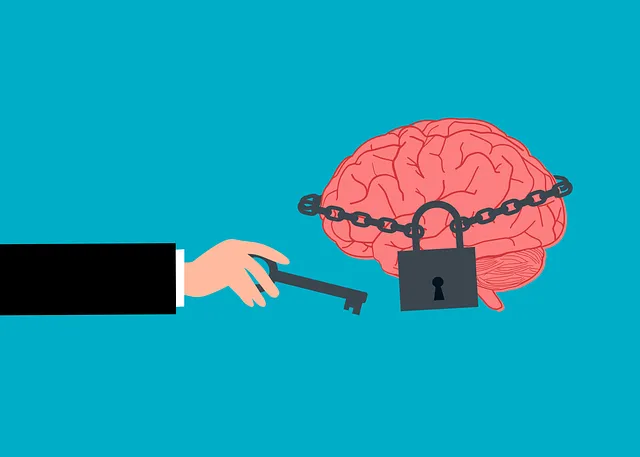The Boulder Kaiser Permanente mental health center champions Crisis Intervention Teams (CITs) with comprehensive training, combining theoretical knowledge with practical skills for effective crisis management. Their program emphasizes de-escalation, communication, cultural competency, and self-care, addressing diverse community needs. By reducing stigma, promoting prevention, and fostering empathy, these CIT initiatives enhance patient care and create healthier communities, solidifying the center's reputation as a leader in mental health innovation, particularly through their continuous improvement approach and Mental Wellness Podcast Series.
Crisis intervention team (CIT) training programs are a vital resource in modern mental health care, equipping professionals with essential skills to navigate and de-escalate crises. This article explores the critical role of CITs, using the Boulder Kaiser Permanente model as a case study—a renowned program showcasing effective training methodologies. We’ll delve into key curriculum components, the far-reaching benefits for healthcare and communities, and strategies for continuous improvement, highlighting the significance of these initiatives in enhancing crisis response capabilities at Boulder Kaiser Permanente mental health centers and beyond.
- Understanding Crisis Intervention Teams: A Necessary Resource in Mental Health Care
- The Boulder Kaiser Permanente Model: A Leading Example of Effective Training Programs
- Key Components of a Comprehensive Crisis Intervention Team Training Curriculum
- Benefits and Impact: How These Programs Empower Healthcare Professionals and Communities
- Strategies for Continuous Improvement and Supporting Long-Term Success in Crisis Response
Understanding Crisis Intervention Teams: A Necessary Resource in Mental Health Care

In today’s complex landscape of mental health care, Crisis Intervention Teams (CITs) have emerged as a vital resource. These specialized teams, often comprised of professionals from various disciplines, play a crucial role in providing immediate and effective support to individuals experiencing severe crises. At renowned institutions like the Boulder Kaiser Permanente mental health center, CIT training programs have gained prominence, recognizing the need for comprehensive crisis management strategies.
The integration of Social Skills Training within these programs equips team members with the necessary tools to de-escalate situations and foster better communication. Additionally, Public Awareness Campaigns Development contributes to a broader understanding of mental health issues among the general public, ensuring that citizens can recognize signs of distress and offer appropriate support. Moreover, by engaging in Mental Health Policy Analysis and Advocacy, these training programs promote systemic changes, making crisis intervention services more accessible and efficient.
The Boulder Kaiser Permanente Model: A Leading Example of Effective Training Programs

The Boulder Kaiser Permanente mental health center has established itself as a beacon of excellence in crisis intervention training programs. Their approach, often hailed as innovative and comprehensive, focuses on empowering individuals to handle critical situations effectively. By combining theoretical knowledge with practical exercises, this model ensures that participants develop robust coping skills and an understanding of emotional healing processes.
This program distinguishes itself through its emphasis on fostering emotional well-being promotion techniques, enabling practitioners to not only respond to crises but also prevent them. The Boulder Kaiser Permanente method has garnered recognition for its ability to equip individuals with the tools needed to navigate mental health challenges, ultimately contributing to more positive outcomes and enhanced community resilience.
Key Components of a Comprehensive Crisis Intervention Team Training Curriculum

A comprehensive crisis intervention team (CIT) training program should encompass several key components to ensure effectiveness and positive outcomes in real-world scenarios. At the Boulder Kaiser Permanente mental health center, for instance, CIT training goes beyond basic crisis management skills. It integrates self-care routine development for better mental health as a foundational aspect, recognizing that burnout prevention is crucial for team members’ longevity and ability to support others.
The curriculum includes in-depth modules on understanding mental health crises, communication strategies tailored for diverse populations, de-escalation techniques, and safe crisis intervention plans. Additionally, training emphasizes the importance of cultural competency, ensuring teams can effectively respond to crises across various demographic backgrounds. Incorporating role-playing scenarios from different contexts allows trainees to practice applying these skills practically, fostering a deeper understanding of complex situations and promoting mental wellness in their future roles as crisis intervention specialists.
Benefits and Impact: How These Programs Empower Healthcare Professionals and Communities

Crisis intervention team training programs play a pivotal role in empowering healthcare professionals to better serve their communities. By equipping staff with the necessary skills and knowledge, these initiatives enable healthcare workers at the Boulder Kaiser Permanente mental health center and similar facilities across the nation to swiftly and effectively respond to individuals in crisis. This not only improves patient outcomes but also fosters a culture of compassionate care within healthcare settings.
Beyond direct benefits to professionals, these programs have far-reaching impacts on communities. By implementing Mental Illness Stigma Reduction Efforts, training promotes understanding and empathy, helping to break down barriers that often prevent those struggling with mental wellness from seeking help. Additionally, through focusing on depression prevention, these initiatives contribute to building resilient communities where mental health is prioritized, ensuring a healthier, more supportive environment for everyone.
Strategies for Continuous Improvement and Supporting Long-Term Success in Crisis Response

To ensure effective crisis intervention team training programs, continuous improvement strategies are essential. At the Boulder Kaiser Permanente mental health center, they emphasize a multifaceted approach to support long-term success in crisis response. Regularly updating training curricula with the latest research and best practices is crucial, allowing teams to stay equipped with the most relevant tools and techniques. Additionally, fostering a culture of open feedback encourages participants to reflect on their experiences and identify areas for growth.
Self-care practices are integral to this process, as they prevent burnout and enhance overall mental wellness. The center promotes coping skills development through workshops and resources, enabling team members to effectively manage stress and challenging situations. Furthermore, leveraging the power of storytelling through a Mental Wellness Podcast Series Production can normalize conversations around crisis response, providing valuable insights and strategies for both professionals and community members.
Crisis intervention team (CIT) training programs, as exemplified by the successful Boulder Kaiser Permanente model, are invaluable resources for enhancing mental health care. By equipping healthcare professionals with the necessary skills and knowledge, these programs foster a more responsive and supportive environment for individuals in crisis. The key components of an effective curriculum, combined with strategies for continuous improvement, ensure that CIT teams can deliver impactful interventions. Embracing such training not only empowers healthcare providers but also strengthens community resilience, ultimately leading to better outcomes for those facing mental health challenges.






